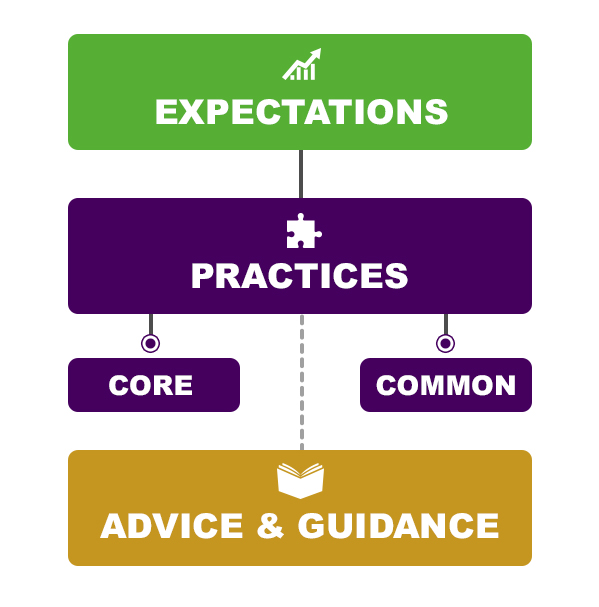Core practices
The provider has a reliable, fair and inclusive admissions system.
The provider designs and/or delivers high-quality courses.
The provider has sufficient appropriately qualified and skilled staff to deliver a high-quality academic experience.
The provider has sufficient and appropriate facilities, learning resources and student support services to deliver a high-quality academic experience.
The provider actively engages students, individually and collectively, in the quality of their educational experience.
The provider has fair and transparent procedures for handling complaints and appeals which are accessible to all students.
Where the provider offers research degrees, it delivers these in appropriate and supportive research environments.
Where a provider works in partnership with other organisations, it has in place effective arrangements to ensure that the academic experience is high-quality irrespective of where or how courses are delivered and who delivers them.
The provider supports all students to achieve successful academic and professional outcomes.
Common practices
The provider reviews its core practices for quality regularly and uses the outcomes to drive improvement and enhancement.
The provider’s approach to managing quality takes account of external expertise.
The provider engages students individually and collectively in the development, assurance and enhancement of the quality of their educational experience.





